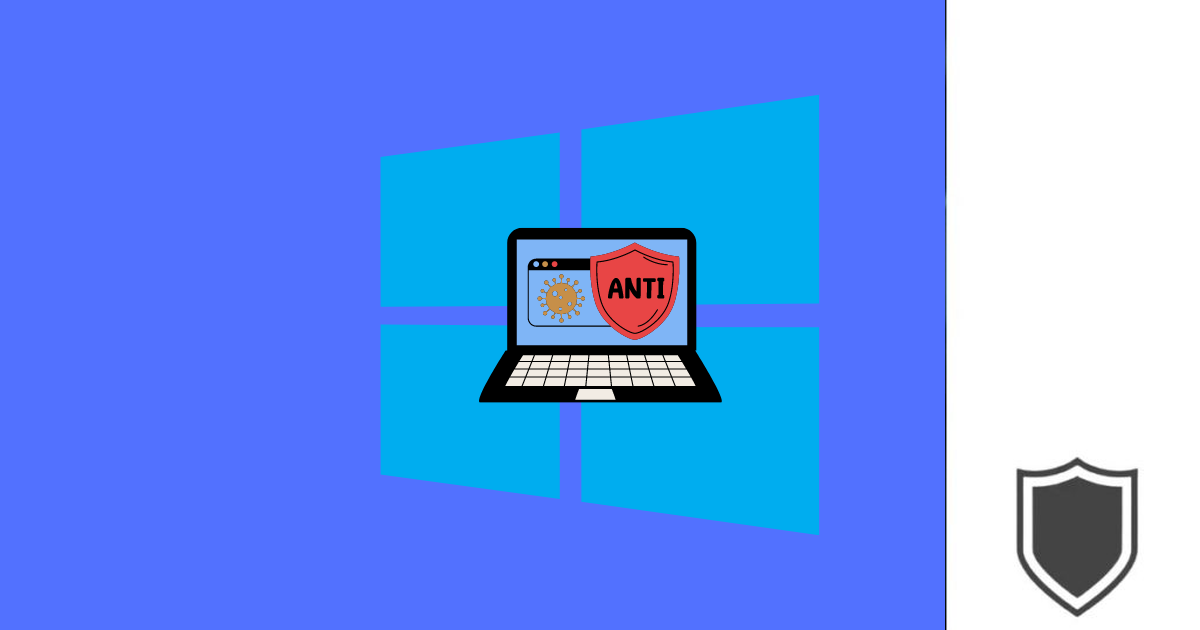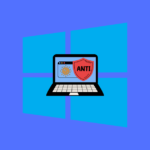In today’s digital era, safeguarding your computer against malware and viruses is critically important. Given that Windows 10 is among the most widely used operating systems, it’s vital to identify the most effective antivirus software suited to your requirements. This piece aims to illuminate the significance of antivirus protection for devices running Windows 10 and navigate you through the leading choices accessible in the market.
My personal favorite is Bitdefender Antivirus Plus. This is because Bitdefender boasts an impressive combination of robust malware and ransomware protection with a highly user-friendly interface. Its comprehensive feature set and top-notch performance make it stand out as a leading choice for ensuring optimal security.
Taking into consideration factors like protection features, additional security offerings, and the difference between free and paid options, we’ve evaluated the best antivirus programs for Windows 10. Our goal is to ensure you receive the most efficient protection, suitable for your personal or business use, while maintaining your privacy and the safety of your personal data.
Table of Contents
Key Takeaways
- Uncovering the significance of antivirus protection for Windows 10.
- Exploring top antivirus options and their features for efficient protection.
- Understanding the factors to consider when choosing the right antivirus software.
Understanding Windows 10 Antivirus
As a Windows 10 user, it’s important to keep your device safe and secure. To achieve this, antivirus software is essential. Antivirus software offers protection from malware, viruses, and other online threats that can compromise your system and personal data. In this section, we’ll discuss the importance of having a Windows 10 antivirus and key factors to consider when choosing the best antivirus for Windows 10.
Windows 10 comes with built-in antivirus protection, called Microsoft Defender. While this is a good starting point, it may not offer complete protection or the advanced features you need to stay safe online. By opting for third-party antivirus software, you’ll benefit from additional features and stronger security.
When selecting an antivirus for your Windows device, make sure it’s compatible with Windows 10. Some options to consider include Bitdefender Antivirus Plus, Norton 360, and [McAfee] AntiVirus Plus. These programs offer a range of features to ensure your device’s safety, such as real-time scanning, advanced malware detection, and phishing protection.
When comparing antivirus software, consider factors like usability, performance, and value for money. Ideally, you’ll want an antivirus solution that’s easy to navigate, doesn’t slow down your device, and provides comprehensive threat protection. Some software offers extras, like VPNs, password managers, or parental control features. Determine which features are most important for your needs and choose an antivirus software accordingly.
The Importance of Antivirus for Windows 10
In today’s online world, using antivirus is crucial to keep your computer safe. For Windows 10 users, while the system has some built-in defenses, they’re not always enough. Good antivirus software protects you from harmful software, keeps your personal information safe, and stops threats like ransomware that lock up your files.
It also ensures you don’t visit risky websites or open dangerous emails. In short, having a solid antivirus on your Windows 10 computer means you can use the internet confidently and safely.

Top Windows 10 Antivirus Options
When it comes to protecting your Windows 10 computer, having a reliable and effective antivirus solution is essential. In this section, we’ll explore some of the top antivirus options available to help you make the right choice for your needs. Below is a ranking of each Antivirus, rated out of 10. As you can see, Bitdefender Antivirus Plus came out on top.
| Criteria | Norton 360 | NortonAntivirus Plus | McAfee Total Protection | Bitdefender Antivirus Plus | Trend Micro Antivirus+ Security |
|---|---|---|---|---|---|
| Price | 9.00 | 8.00 | 10.00 | 10.00 | 7.00 |
| Performance | 9.00 | 8.00 | 9.00 | 9.00 | 8.00 |
| Testing | 8.00 | 8.00 | 9.00 | 9.00 | 8.00 |
| Malware Protection | 9.00 | 9.00 | 9.00 | 9.00 | 9.00 |
| Ransomware Protection | 9.00 | 9.00 | 9.00 | 9.00 | 8.00 |
| User-Friendliness | 9.00 | 9.00 | 9.00 | 10.00 | 8.00 |
| Average | 8.83 | 8.33 | 9.00 | 9.17 👑 | 8.08 |
Norton 360 offers a comprehensive suite of security tools, making it one of the most popular antivirus solutions. It includes features like powerful malware protection, a VPN, parental controls, secure storage, and a password manager. With a diverse array of features and impressive performance, Norton 360 is a solid choice for most users.
Another great option is Norton AntiVirus Plus, which provides strong protection against viruses, spying, ransomware, and more. While it shares some features with Norton 360, it’s a more streamlined antivirus product and can be more budget-friendly.
McAfee Total Protection is a well-known antivirus suite offering a range of features for comprehensive security and performance boosts. Its features include antivirus, internet and phishing protection, a firewall, file encryption, and password management. Both PCMag and Tom’s Guide recommend it as a strong and reliable option for Windows 10 users.
Bitdefender Antivirus Plus provides excellent antivirus and malware protection, along with advanced features such as phishing protection, ransomware remediation, and a secure browser. For those who require more extensive coverage, Bitdefender Total Security offers additional features like a firewall, parental controls, and system optimization tools.
This is our favorite Antivirus right now, due to the features described above.
Trend Micro Antivirus+ Security is another worthwhile option, with its focus on efficient antivirus protection and useful bonus features. Its multilayered protection system shields your PC from threats while providing privacy enhancements like Pay Guard to protect your sensitive information.
In conclusion, selecting the best antivirus for your Windows 10 device depends on your specific needs and preferences. Consider factors such as the level of protection, feature set, ease of use, and system impact when making your decision.
Comparisons Between Antivirus Programs
When choosing an antivirus program for your Windows 10 computer, several factors should be taken into consideration. These include performance, price, and independent testing labs’ reviews.
Comparing antivirus programs based on performance is essential since it directly impacts your system’s resources and efficiency. You should prioritize solutions that provide comprehensive protection without causing substantial slowdown.
Price should also be considered as you evaluate various antivirus options. Remember, while there are free antivirus programs available (such as [Bitdefender] Antivirus Free Edition), paid options may offer more robust features and better overall protection. Analyze your needs and budget to choose the best value for your specific requirements.
Independent testing labs like AV-Comparatives play a vital role in evaluating antivirus software. They conduct in-depth tests to assess how well each antivirus program detects and eliminates threats. When selecting an antivirus solution, always consider the results from these independent antivirus testing labs. High scores in detection rates, false positive rates, and performance tests can be considered reliable indicators of the software’s effectiveness.
To summarize, when evaluating antivirus programs for your Windows 10 system, consider the following factors:
- Performance: The impact on system resources and the effectiveness of the protection
- Price: The cost of the antivirus program and the value it offers
- Independent testing labs: Reviews and ratings from reputable antivirus testing labs like AV-Comparatives
By carefully considering these aspects, you can confidently choose the right antivirus solution for your Windows 10 computer.
Protection Features of Antivirus
Antivirus software offers a wide range of protection features that can safeguard your Windows 10 computer from various threats. Here’s an overview of some essential functions:
Antivirus protection: This is the core function of any antivirus software. It scans your system for known and potential viruses, quarantines detected threats, and removes them, ensuring your files and data remain secure.
Ransomware protection: Ransomware causes significant damage by encrypting your valuable data and demanding a ransom for its decryption. Top-notch antiviruses include ransomware protection, preventing this type of malware from compromising your data.
Malware protection: Malware includes various harmful software like adware, spyware, and Trojans. A good antivirus detects and removes these threats to safeguard your sensitive information and overall system performance.
Firewall: A built-in firewall enhances your online security by acting as a barrier between your computer and the internet, filtering out malicious traffic and preventing unauthorized access.
Real-time protection: This feature constantly scans your computer for any suspicious activities, enabling the antivirus software to detect and remove threats before they can cause harm.
Password manager: An integrated password manager helps you securely store and manage your login credentials in an encrypted vault, reducing the risk of password theft and promoting the use of strong passwords.
Parental controls: With parental controls, you can effectively monitor and control the websites and content accessible to your children, ensuring a safe and age-appropriate online environment.
Webcam protection: Protect your privacy by blocking unauthorized access to your computer’s webcam, preventing spying or recording without your knowledge.
VPN: A virtual private network (VPN) feature encrypts your internet connection, ensuring safer and anonymous browsing while protecting your online privacy from third parties, including hackers and data trackers.
Vulnerability scanner: By scanning your system for vulnerabilities, this feature can identify and notify you of outdated software, missing security patches, and other potential weaknesses, enabling you to prioritize updates and fixes.
Wi-Fi scanner: This function monitors your Wi-Fi network for intruders or vulnerabilities, alerting you to any potential risks and ways to address them.
Banking protection: To ensure the security of your online financial transactions, a dedicated banking protection feature scans webpages for potential phishing threats and encrypts your communications with banking or shopping websites.
By considering these features when choosing the right antivirus software for your Windows 10 device, you can rest assured that your computer will be well protected against various online and offline threats.
Dealing With Specific Threats
When it comes to protecting your Windows 10 computer, it’s essential to stay updated on the latest cyber threats and implement a robust antivirus solution. Here, you’ll learn some practical ways to prevent and deal with various online hazards: hackers, ransomware, malware, phishing, trojans, malicious websites, and phishing emails.
Hackers can attempt to break into your system by exploiting vulnerabilities or weak passwords. To counter these threats, always keep your software up to date, use strong and unique passwords, and consider enabling multi-factor authentication for sensitive accounts.
Ransomware encrypts your files and holds them hostage until you pay a ransom. The best protection against ransomware is keeping regular backups of your data, using a highly-rated antivirus software, and being cautious about opening suspicious email attachments. Some top options for Windows 10 users are [Bitdefender] Antivirus Plus and Norton AntiVirus Plus.
Malware encompasses a wide range of threats, such as adware, spyware, and viruses. To better handle malware, always maintain your computer’s security posture by frequently updating your operating system, utilizing a reliable antivirus solution, and avoiding suspicious software downloads.
Phishing attacks involve criminals posing as legitimate entities, attempting to trick you into giving away personal or sensitive information. Protect yourself against phishing by double-checking the legitimacy of emails and websites before providing any data. Installing a browser extension to detect and block phishing websites can also be beneficial.
Trojans are harmful programs that disguise themselves as legitimate software. To guard against trojans, only download software from trusted sources, avoid pirated content, and keep your antivirus software running regularly.
Malicious websites are designed to infect your computer with malware or steal your sensitive information. Use a reliable web browser, enable safe browsing features, and follow the best practices mentioned above to minimize the risk of malicious sites compromising your computer.
Phishing emails are deceptive emails that aim to trick you into providing sensitive information or downloading malware. To handle phishing emails, never click on unknown links or download attachments from unfamiliar senders. Additionally, familiarize yourself with the common signs of phishing emails, such as poor grammar, mismatching URLs, and urgent requests for personal information.
By understanding and implementing the above steps, you can minimize the risk of falling victim to these digital threats and keep your Windows 10 computer secure.

Maintaining Privacy and Personal Data Safety
In today’s digital world, safeguarding your personal information, online banking details, and preventing identity theft is essential. To maintain privacy and ensure the safety of your personal data on Windows 10, using a reliable antivirus software is crucial.
Choose an antivirus software that offers comprehensive protection against malware and other online threats. Bitdefender Antivirus Plus and Norton 360 Antivirus are great options, providing robust security features tailored to keep your sensitive data safe.
To further enhance your privacy, regularly review and update your Windows 10 privacy settings. Navigate to Settings > Privacy and adjust the options to your preferences. Remember to allow only necessary permissions for apps and services to access your information.
When using online banking or sharing personal data, always ensure you’re using a secure connection. Look for a padlock icon and HTTPS in the address bar to confirm the security of the website. Avoid public Wi-Fi networks when accessing sensitive information, as these can be more susceptible to cyber-attacks.
Your browsing habits also play a vital role in maintaining privacy. Clear your browsing history, cookies, and cache regularly, and consider using privacy-focused browsers or extensions to limit tracking and data collection.
By choosing a reputable antivirus software, adjusting your privacy settings, and following safe browsing practices, you can confidently maintain your privacy and protect your personal data from potential identity theft and other online threats.
Conclusion | Best Antivirus for Windows 10
As a Windows 10 user, it’s crucial to ensure that your computer is protected against various types of malware. By choosing one of the best antivirus software available, you can have confidence that your device is secure and your personal information is safeguarded.
With many excellent options on the market, consider antivirus programs like [Bitdefender] Antivirus Plus and Norton 360 which have consistently earned high praise for their powerful malware protection and additional features.
When selecting an antivirus, take into account factors such as system compatibility, your budget, and specific security needs. Opt for a program that not only detects and removes harmful software but also provides real-time protection and frequent updates.
Remember that using up-to-date antivirus software is just one component of maintaining your computer’s security. Be sure to also prioritize regular software updates and practice safe browsing habits to reduce the risk of malware infections.
By following these recommendations and investing in a top-quality antivirus program, you can enjoy peace of mind knowing that your Windows 10 computer is well-protected against various cyber threats.
Frequently Asked Questions
What are the top free antivirus solutions for Windows 10?
There are several free antivirus solutions available for Windows 10. Some popular options include Avast Free Antivirus, AVG Free Antivirus, and Kaspersky Security Cloud Free. While these programs provide basic protection, they may not offer the same features and level of security as their paid counterparts. Be sure to do your research and choose the one that best fits your needs.
How does Microsoft Defender compare to other antivirus programs?
Microsoft Defender is the built-in antivirus software for Windows 10. It offers real-time protection against malware and other threats. Although it has improved significantly over the years, it may not provide the same level of protection as some dedicated third-party antivirus programs. However, for many users, Defender is sufficient, and its seamless integration with the operating system makes it easy to use.
Which antivirus offers the best protection against malware?
Some of the top antivirus programs known for their high level of malware detection and protection are Norton, Bitdefender, and McAfee. Keep in mind that the effectiveness of any antivirus software can vary, so it’s essential to research and compare the latest test results, features, and user reviews.
How do Norton and Avira perform on Windows 10?
Both Norton and Avira offer reliable antivirus solutions for Windows 10 users. Norton is known for its comprehensive security suite, which includes advanced features like password management and VPN. On the other hand, Avira is well-regarded for its free antivirus offering, which provides robust protection and additional security tools. Both antivirus programs perform well on Windows 10, but your choice should depend on your specific requirements and budget.
What is the most recommended antivirus on Reddit?
Reddit users often have varying opinions on the best antivirus, as preferences can depend on individual needs and experiences. However, some commonly recommended antivirus programs on Reddit include Norton, Bitdefender, and ESET. Always take online recommendations with a grain of salt and do your research to find the best solution for your needs.
Is there a significant difference between free and paid antivirus software?
Free antivirus software typically provides basic protection against common threats. However, paid antivirus solutions often include additional features like enhanced malware protection, firewall, VPN, and parental controls. Moreover, paid options usually offer better customer support and more frequent updates to keep up with emerging threats. It’s crucial to consider your unique security needs and weigh the benefits of both free and paid antivirus software before making a decision.
- Amazon Email Phishing: How to Identify and Avoid Scams - June 10, 2025
- Malwarebytes vs McAfee: Decoding the Ultimate Antivirus Battle - June 10, 2025
- Best Antivirus for Windows 10: Expert Recommendations for 2023 - June 10, 2025










1 thought on “Best Antivirus for Windows 10: Expert Recommendations for 2023”